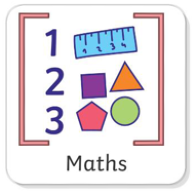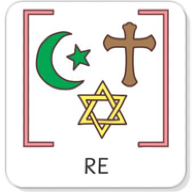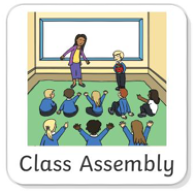Tuesday
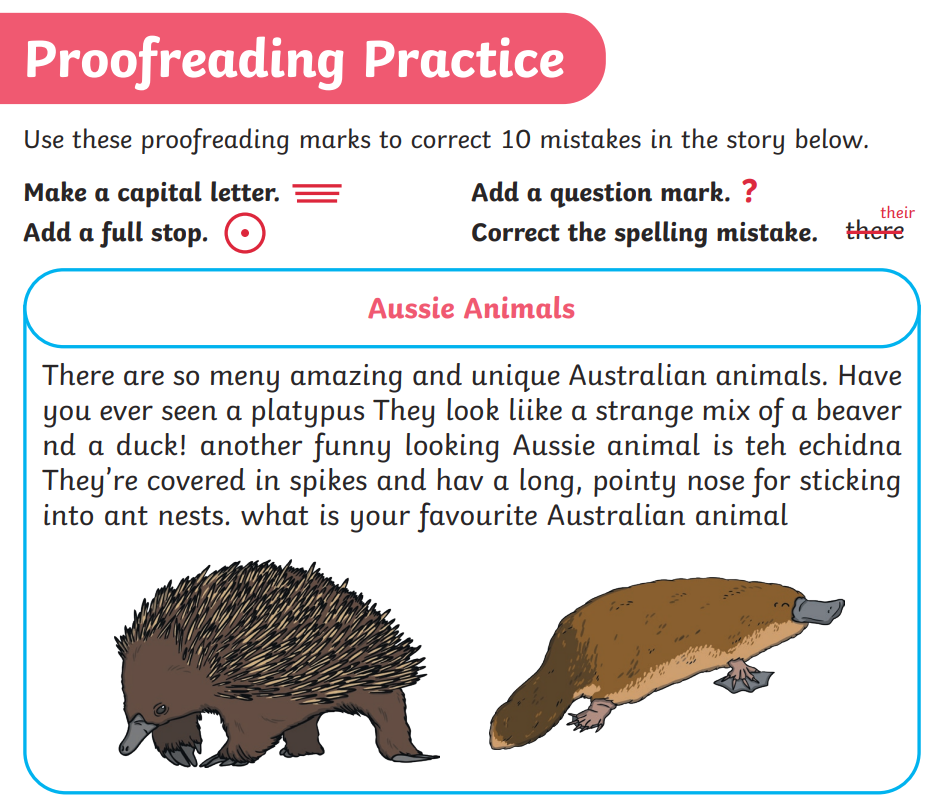
RIC
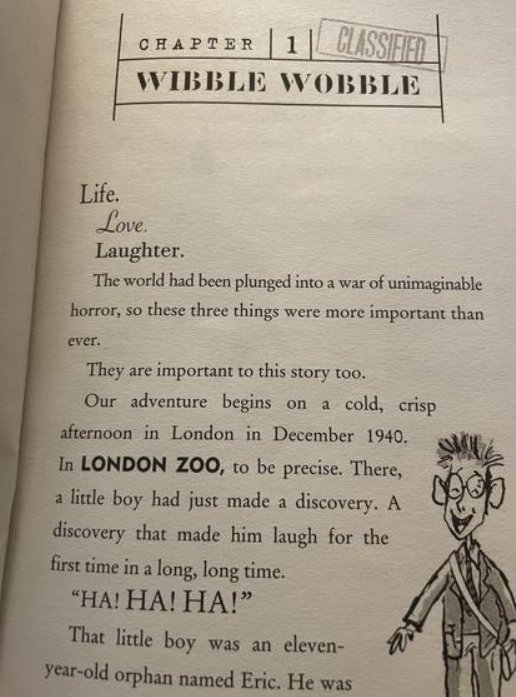
R: Where is the story set?
I: why does the author think life, love and laughter is important?
C: what do you think the author means by unimaginable horror?
Tuesday 21st January 2025
LC: To identify key details from a non- fiction text: Anglo- Saxon food.
Task: Read the different texts below and using your retrieval skills, fill in the table (What did the Anglo- Saxons eat?) Remember to look out for the key words which have been highlighted on the table. You can write in notes as you will be using these notes later on to help you to complete your non- chronological reports on Anglo- Saxon life in Britain.
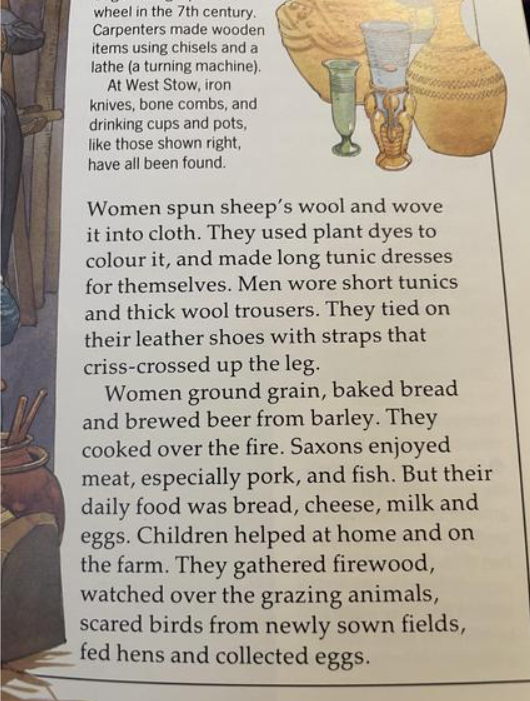
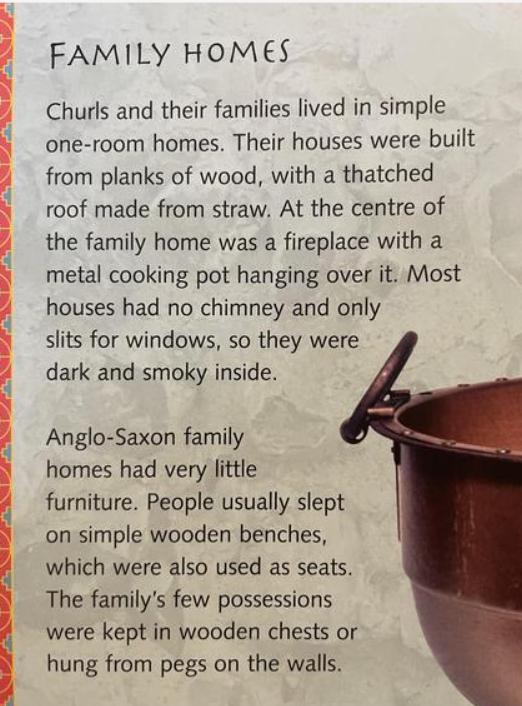
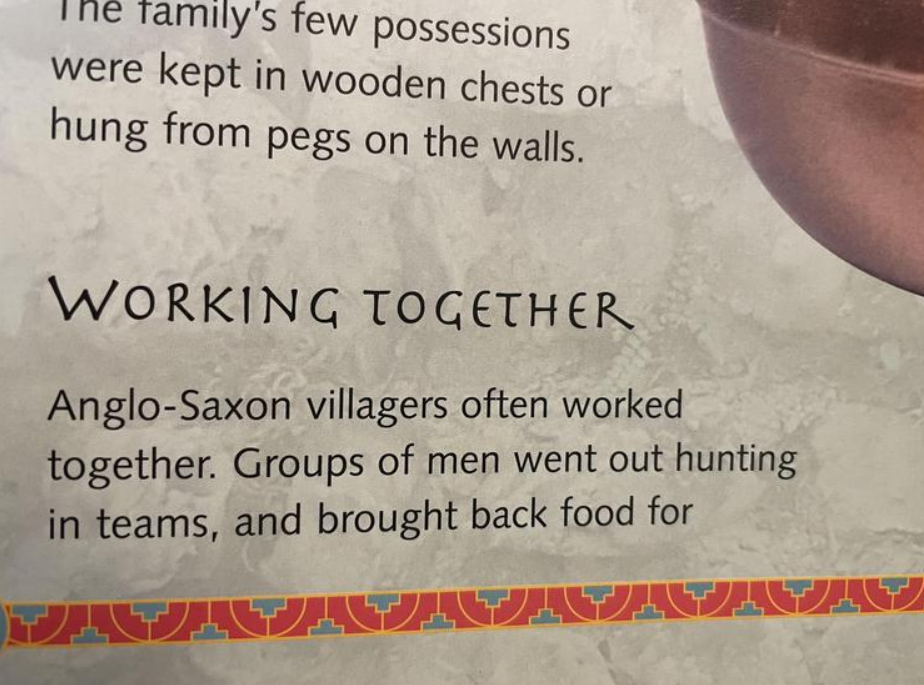
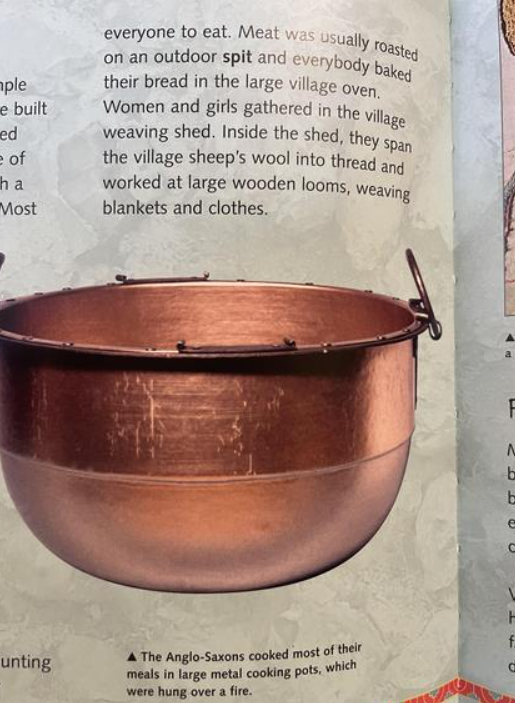
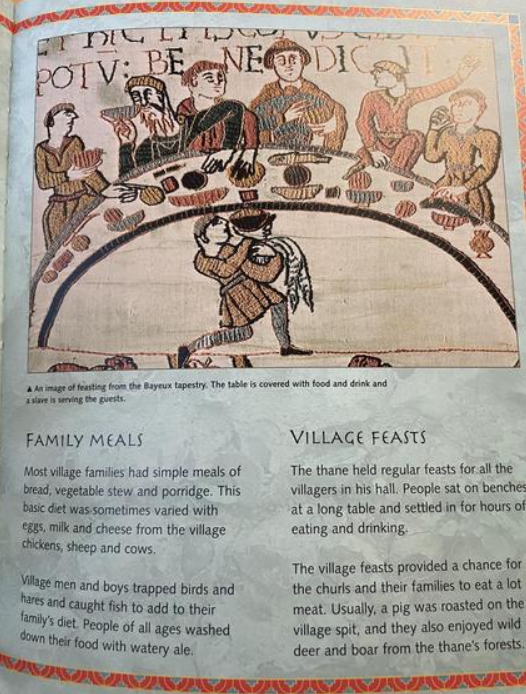
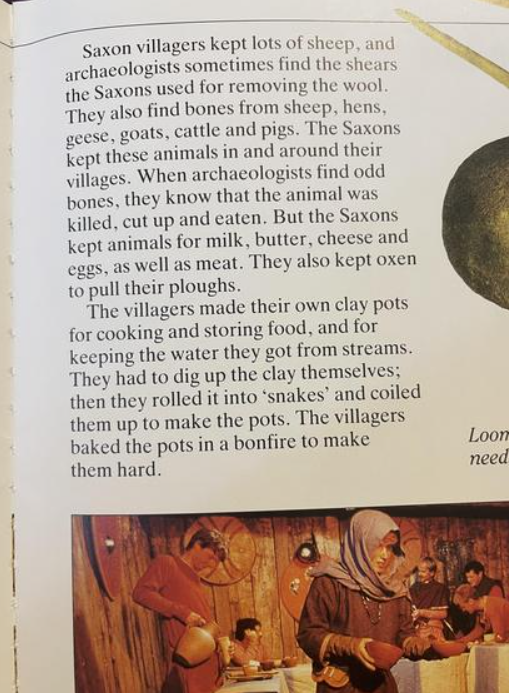
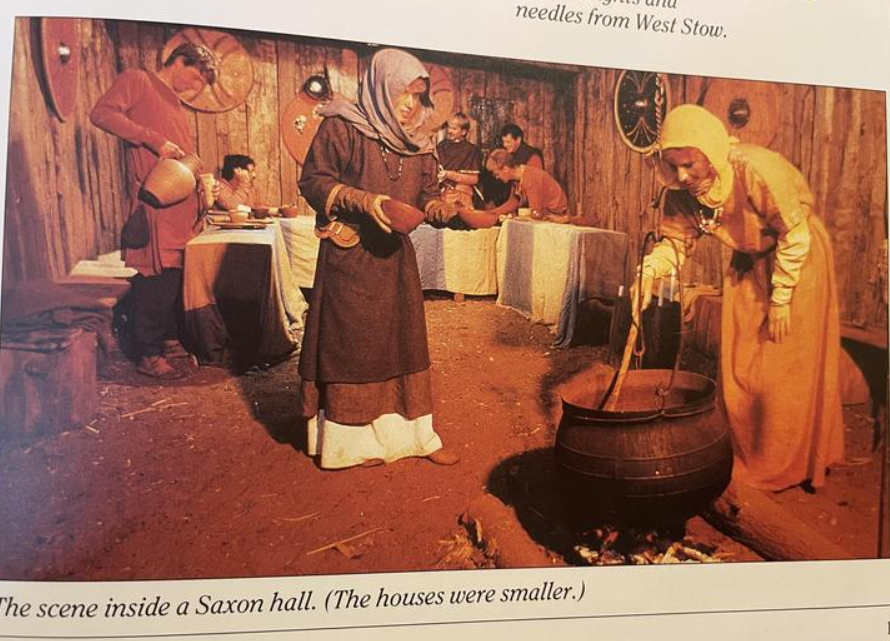
The Anglo-Saxons loved eating and drinking and would often have feasts in the Hall. The food was cooked over the fire in the middle of the house; meat was roasted and eaten with bread.
They drank ale and mead - a kind of beer made sweet with honey - from great goblets and drinking horns.
After the feast a minstrel would play a harp and sing songs of battles and heroes.
Anglo-Saxons ate what they grew.
They grew
- cereals - Wheat and rye for bread, barley for brewing and oats for animal food and porridge.
- vegetables - carrots, parsnip, cabbages, peas, beans and onions.
- fruit - such as apples, cherries and plums
Exotic foods such as potatoes, tomatoes, bananas, pineapples - fruits and vegetables of the New World, were unknown to the Anglo-Saxons.
Drink
Barley was used to make weak beer, which was drunk instead of water. River water was often polluted. wine was imported from the Mediterranean but only drunk by the very rich.
Most Anglo-Saxons were vegetarians because they could not get meat very often. Wild animals such as deer and wild boar were common but could only be killed by the people who owned the land. Only a few Anglo-Saxons were wealthy enough to pay for a slaughter of an animal.
Animals
Pigs were important for food because they produce large litters, which would quickly mature and be ready for slaughter. They were the only animals reared just for their meat. Every other kind of animal served other purposes and were only killed when they became old or ill. Sheep were reared for their wool and meat. Cows were used for their milk and, when they were old, for hides, meat and glue. All animal fat was valuable for making oils for lamps.
Fish
The Anglo-Saxons ate fish which they caught in the rivers and the seas.
reading task anglo saxon foods.pdf
Grammar
Determiners exam style questions.
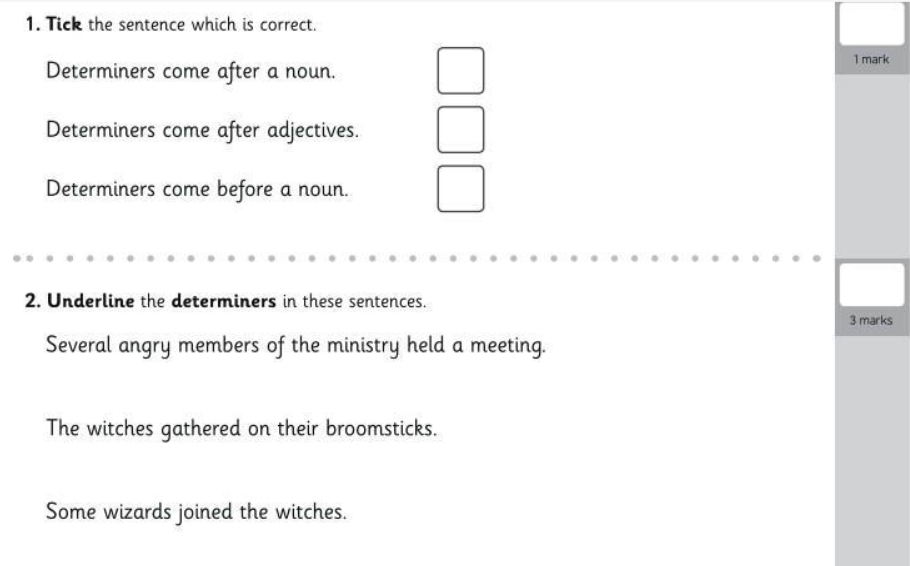
Tuesday 21st January 2025
LC: To undertake research from a variety of texts.
Today, we are going to complete our notes on The Romans.
Make sure you have completed your notes on education and toys.
Our final section will be fun facts.
Facts about the Romans for kids:
- Romans used cobwebs to stop bleeding.
- The streets of ancient Rome were covered in graffiti.
- The Colosseum could be flooded to re-enact naval battles.
- Mouse brains were used as toothpaste by some Romans.
- The planets Mercury, Venus, Mars, Jupiter, and Saturn are named after Roman gods.
- Romans spoke Latin, which influenced modern French, Italian, Spanish, Portuguese, and Romanian.
- Ancient Romans used animal and human urine to clean their clothes.
- Rome was the first city in the world to record a population of 1 million people.
- The Roman Empire lasted for about 1,000 years.
- Rome adopted Christianity, a religion from the Middle East
On this site, you will find lots of information. Let's scan a few pages.
Facts about Romans for Kids - Roman Britain Homework help
Now, using the video, the link from today and the links from Tuesday and Wednesday, complete the last section of notes.
Now, we will look at turning some of your notes into year 4 sentences.
boys- wooden swords
Roman boys would often play with wooden weapons like swords or daggers. This was because lots of their play was linked to wars and battles and they wanted to be warriors..
Let's share a fact and you can help be turn it into a sentence.
21.01.25
LC: To be able to solve word problems involving multiplication and division
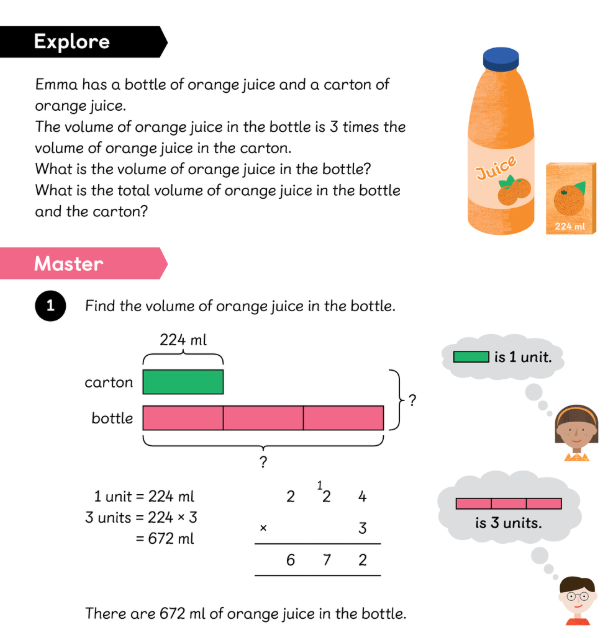
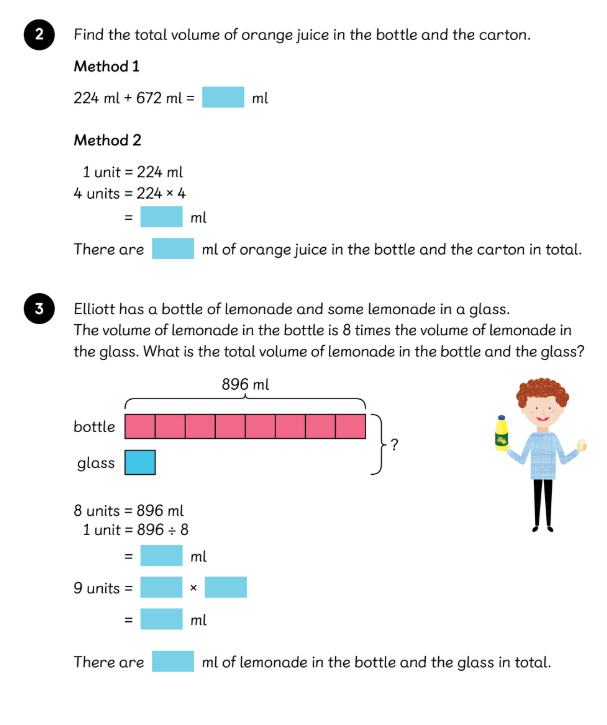

Tuesday 21st January 2025
LC: To explain the different ways fasting impacts individuals, families and communities including the pillar of Zakat.
Concept question: Is being a part of a community the same for everyone?
Challenge: We will choose 5 children in the lesson who will have to completely give up talking. We will find out at the end of the lesson what it felt like to watch other children talk and not be able talk.
Think about:
What would it be like to give up food and drink during daylight hours?
How much commitment would be required?
Discuss in pairs how it might feel to eat after a day of fasting?
Why might it be important to share the Iftar?
What impact might this have on individuals, families and the Islamic community?
Task: Write down five questions you would like to ask a Muslim who fasts in the month of Ramadhan. You will have the opportunity to interview some Muslims who fast in the month of Ramadhan so you can understand how fasting impacts them.
Teacher model:
1.
2.
3.
4.
5.
Zakat during Ramadhan:
During Ramadan, Muslims are encouraged to give more generously to those in need. Although Islam does not require Muslims to pay their Zakat Al-Mal , the yearly obligatory “Alms of Wealth,” in Ramadan, it does oblige every Muslim, regardless of age or gender to pay Zakat Al-Fitr, the “Zakat of Fast-Breaking,” in Ramadan. Zakat al-Fitr is often given during Ramadan so it can be distributed on the day of Eid. Many Muslims choose to pay their Zakat during Ramadan because it’s easier for them to keep track of each year.
What is Zakat al-Fitr and Why is it Paid?
The main purpose of Zakat al-Fitr is to provide those who fasted with the means of making up for their mistakes during the month of fasting. It also ensures that the poor can celebrate the festival of Eid al-Fitr along with the rest of the Ummah.
Ibn Abbas narrated that:
‘The Prophet (saw) made Zakat al-Fitr compulsory so that those who fasted may be purified of their idle deeds and shameful talk and so that the poor may be fed’. (Abu Dawud)
Who has to Pay Zakat al Fitr?
Any Muslim who has food in excess of their needs must pay Zakat al-Fitr. This means that, unlike Zakat, it is a duty on everyone in your household. The head of the household can pay on behalf of other members of the family.
What about Children?
Zakat al-Fitr is due on every member of a household including children and babies. However, the head of the household may pay on behalf of their dependents.
When Should it be Paid?
Zakat al-Fitr is exclusive to the month of Ramadan and can be paid any time after the start of the holy month. The latest one can pay is before the Eid prayer so that the needy can benefit in time for Eid. Ibn Abbas narrates:
‘It is accepted as Zakat for the person who gives it before the Eid prayer; but it is a mere Sadaqah for the one who gives it after the prayer’. (Abu Dawud)
This shows the importance of paying your Zakat al-Fitr on time and so that it is accepted.
Working together:
- What does the word TEAM mean?
- Let's look up the word ‘team’ in a dictionary. R
- In what activities might we need to work in a team to be successful?
- What might happen if we didn't work in a team in the following games:
- egg and spoon race
- relay race
- board games
- cops and robbers
- football
- sports
- Christians believe that God made us so that we could all work together to make the world a better place. He placed us in families that are like small teams that care for and look after each other. He gave us friends so that we could have fun together and make each other happy. He gave us a wider family in school so that we could be a team together, supporting and helping each other in everything we do.
Time for reflection
Are we good team players?
Pause to allow time for thought.
Is there something we could do today to help someone feel more part of our class/school team?
Pause to allow time for thought.
Are we committed to helping and encouraging one another?
Pause to allow time for thought.
Encourage the children to spend time thinking about how they can encourage or help someone today.
Prayer
Dear God,
Thank you for placing us in families, in friendship groups and in a school that cares for us.
Please help us to play our part and be good team players who always help and encourage others.
Amen.







